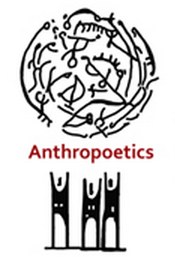 I am a board member of the Generative Anthropology Society. I also serve on the editorial board of the society’s journal, Anthropoetics. The society was founded in 2010 but the journal itself goes back to 1995 and is, in fact, UCLA’s oldest open access journal.
I am a board member of the Generative Anthropology Society. I also serve on the editorial board of the society’s journal, Anthropoetics. The society was founded in 2010 but the journal itself goes back to 1995 and is, in fact, UCLA’s oldest open access journal.
Generative anthropology is founded on the idea that those categories deemed fundamental to anthropological understanding are traceable to their appearance in an originary scene. Because human culture is transmitted non-genetically, purely biological explanations of culture can only ever be partial. Rather than seeking to emulate the experimental methods of the natural sciences, generative anthropology employs the research strategy of the originary hypothesis, which traces the various elements of culture to their genesis in a scene of origin. Language is the fundamental cultural institution and therefore a fundamental element of the originary hypothesis. But other fundamental anthropological categories may be situated with respect to this scene, including desire and resentment, morality and the sacred. Generative anthropology also includes the aesthetic as a distinct element of the scene and this perhaps explains its appeal to literary scholars and theorists.
Zack Baker has created a website—generativeanthropology.com—with links to short introductions to GA.
The society meets annually to share the research of its members. Recent conference venues include Tokyo (2024), Palo Alto (2023), Ottawa (2022), Bar-Ilan University (2021), New York (2019), Warsaw (2018), Stockholm (2017), and Nagoya (2016). The 2014 conference took place in Victoria and was hosted by my university. Because of the coronavirus outbreak, there was no 2020 meeting.
